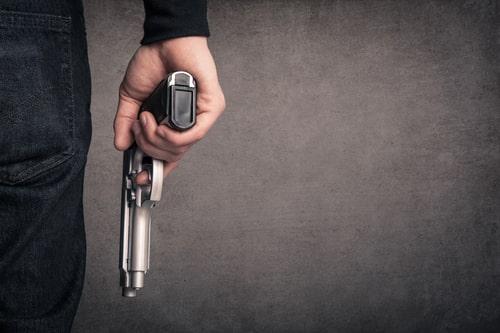Recent Blog Posts
Can Married Spouses Get a Legal Separation in Wisconsin?
 There are many reasons why a couple’s marriage may break down. In some cases, it may be clear to one or both spouses that the marriage cannot be saved and that divorce is the best choice for everyone involved. However, other couples may not yet be ready for the finality of a divorce, or they may wish to remain legally married even if they will not be living together. In these cases, a legal separation may be appropriate, either as a step along the road to divorce while a couple determines whether their marriage can be saved or as a more permanent solution.
There are many reasons why a couple’s marriage may break down. In some cases, it may be clear to one or both spouses that the marriage cannot be saved and that divorce is the best choice for everyone involved. However, other couples may not yet be ready for the finality of a divorce, or they may wish to remain legally married even if they will not be living together. In these cases, a legal separation may be appropriate, either as a step along the road to divorce while a couple determines whether their marriage can be saved or as a more permanent solution.
Legal Separation Vs. Divorce
In Wisconsin, family courts handle legal separation very similarly to divorce. As with a divorce petition, one party will file a petition for legal separation, alleging that the marriage has broken down irretrievably. If both parties agree that their marriage is irretrievably broken, or if the couple has voluntarily lived separately for at least 12 months, the request for a legal separation will usually be granted. A family court may also grant a legal separation if one party does not agree that the marriage is irretrievably broken, as long as a judge determines that there is no reasonable prospect of reconciliation.
Can I Receive Probation for a Drug Possession Charge in Wisconsin?
 There are multiple types of drug crimes that a person may face, ranging from “simple” charges of drug possession to more serious offenses involving manufacturing or distributing controlled substances. Because these types of crimes are taken so seriously by law enforcement, a person who is arrested on drug charges may be concerned that they will face serious consequences, such as the requirement to pay large fines or serve a lengthy sentence in prison. Alleged offenders should be aware of the options for probation that may be available in some cases, and they will need to understand the rules and restrictions they may face if they receive this type of sentence.
There are multiple types of drug crimes that a person may face, ranging from “simple” charges of drug possession to more serious offenses involving manufacturing or distributing controlled substances. Because these types of crimes are taken so seriously by law enforcement, a person who is arrested on drug charges may be concerned that they will face serious consequences, such as the requirement to pay large fines or serve a lengthy sentence in prison. Alleged offenders should be aware of the options for probation that may be available in some cases, and they will need to understand the rules and restrictions they may face if they receive this type of sentence.
Conditional Discharge for First-Time Drug Possession Offenses
If a person had not previously been convicted of any drug-related offenses, they may receive a sentence of conditional discharge following a guilty plea or verdict for a charge of possession or attempted possession of controlled substances. Conditional discharge is another term for probation. When sentencing a person to probation, a judge will determine an appropriate period for the sentence, which is usually between six months and three years. After completing probation, all charges against the person will be dismissed, and they will not have a criminal conviction on their record. Conditional discharge for drug possession charges is only available to a person once during their lifetime.
How Is Spousal Maintenance Determined in Wisconsin?
 A divorce can lead to a variety of financial difficulties for both parties. While spouses will need to make adjustments to ensure that they will be able to support themselves individually instead of using a combined income, there are some situations where one party may be at a financial disadvantage. If one spouse earns a lower income, or if they are a stay-at-home parent who does not work outside the home, spousal maintenance may be appropriate. In these situations, a spouse may ask for ongoing support payments from their former partner. By understanding how Wisconsin law addresses this issue, divorcing spouses can understand their rights and determine how they can protect their financial interests.
A divorce can lead to a variety of financial difficulties for both parties. While spouses will need to make adjustments to ensure that they will be able to support themselves individually instead of using a combined income, there are some situations where one party may be at a financial disadvantage. If one spouse earns a lower income, or if they are a stay-at-home parent who does not work outside the home, spousal maintenance may be appropriate. In these situations, a spouse may ask for ongoing support payments from their former partner. By understanding how Wisconsin law addresses this issue, divorcing spouses can understand their rights and determine how they can protect their financial interests.
Understanding Issues Related to Spousal Support
When it comes to spousal maintenance, Wisconsin’s divorce laws are fairly broad. Judges have a great deal of leeway to determine when this form of support will be appropriate, how much will be paid, and how long payments will last. The law lists a number of factors that should be considered by a judge when they look at whether to award spousal maintenance, and these include the age and health of both parties, how their financial situations will be affected by the division of marital property, and whether they have made any agreements about this issue, such as a prenuptial agreement.
Does Wisconsin Have "Red Flag" Laws That Restrict Gun Ownership?
 While the Second Amendment of the United States Constitution guarantees that Americans have the right to bear arms, there are some cases where laws restrict people’s ability to own or possess weapons. Some states have passed what are known as "red flag" laws that make it illegal for certain people to own firearms or other types of weapons based on their criminal history or other issues that could potentially create a danger to others. People in Wisconsin will want to understand what types of weapons laws apply to them, and anyone who is facing weapons charges can work with an attorney to determine their options for defense.
While the Second Amendment of the United States Constitution guarantees that Americans have the right to bear arms, there are some cases where laws restrict people’s ability to own or possess weapons. Some states have passed what are known as "red flag" laws that make it illegal for certain people to own firearms or other types of weapons based on their criminal history or other issues that could potentially create a danger to others. People in Wisconsin will want to understand what types of weapons laws apply to them, and anyone who is facing weapons charges can work with an attorney to determine their options for defense.
Laws Addressing Firearm Ownership in Wisconsin
States that have implemented "red flag" laws may prohibit gun ownership for people who are considered a threat to other people or society at large. Usually, these laws allow for temporary restrictions in certain situations, such as when a person is accused of committing domestic violence. In many cases, only law enforcement officials are permitted to implement protective orders requiring a person to surrender their firearms. However, other people, such as a person’s spouse or family members, may be able to request these types of orders.
When Can a Parent Receive Sole Custody of Their Child in Wisconsin?
 There are many different legal issues that will need to be addressed during a divorce, and for parents, child custody is likely to be one of the most important of these issues. When a couple’s relationship has broken down, and they no longer wish to remain married, it is understandable if either or both spouses are concerned about their ability to work together to raise their children. While parents will often do their best to set aside their differences and make sure that they will each play an important role in raising their children, there are some cases where a parent may believe that it would be best for one parent to have sole custody of their children. In these situations, parents in Wisconsin will need to understand how the state’s laws address sole and joint child custody.
There are many different legal issues that will need to be addressed during a divorce, and for parents, child custody is likely to be one of the most important of these issues. When a couple’s relationship has broken down, and they no longer wish to remain married, it is understandable if either or both spouses are concerned about their ability to work together to raise their children. While parents will often do their best to set aside their differences and make sure that they will each play an important role in raising their children, there are some cases where a parent may believe that it would be best for one parent to have sole custody of their children. In these situations, parents in Wisconsin will need to understand how the state’s laws address sole and joint child custody.
Sole Custody and Physical Placement Under Wisconsin Law
Is Driving Under the Influence of Marijuana Illegal in Wisconsin?
 The use of marijuana has become more acceptable in the United States over the past several years. Many people treat this substance the same as alcohol, considering it to be a relatively harmless recreational drug to be used in moderation. However, even though multiple states have made marijuana legal as either prescription medication or a recreational substance, it continues to be illegal in Wisconsin and at the federal level. Drivers in Wisconsin should be aware of the potential consequences they may face if they are arrested for OWI/DUI based on their use of marijuana.
The use of marijuana has become more acceptable in the United States over the past several years. Many people treat this substance the same as alcohol, considering it to be a relatively harmless recreational drug to be used in moderation. However, even though multiple states have made marijuana legal as either prescription medication or a recreational substance, it continues to be illegal in Wisconsin and at the federal level. Drivers in Wisconsin should be aware of the potential consequences they may face if they are arrested for OWI/DUI based on their use of marijuana.
“Driving While High” in Wisconsin
Since marijuana can have intoxicating effects similar to alcohol, those who drive while under the influence of this substance could be pulled over by a police officer and arrested for Operating While Intoxicated (OWI). However, there are a few differences between OWI cases involving alcohol and those involving marijuana.
What Legal Options Do I Have If My Spouse Not Obeying Divorce Decree?
 It is not uncommon for there to be a number of disagreements between a couple who is going through a divorce. While there are often personal issues lingering that caused the divorce to begin with, the couple must now decide how their married life will be divided – including child custody, division of marital assets and debt, child support, and more. This can result in even more disagreements and acrimony. Unfortunately, in many cases, even after the divorce has long been finalized, one spouse may still refuse to comply with the court’s orders. In these situations, the other spouse can seek the assistance of a Milwaukee County family law attorney in taking the legal steps to enforce the court’s orders.
It is not uncommon for there to be a number of disagreements between a couple who is going through a divorce. While there are often personal issues lingering that caused the divorce to begin with, the couple must now decide how their married life will be divided – including child custody, division of marital assets and debt, child support, and more. This can result in even more disagreements and acrimony. Unfortunately, in many cases, even after the divorce has long been finalized, one spouse may still refuse to comply with the court’s orders. In these situations, the other spouse can seek the assistance of a Milwaukee County family law attorney in taking the legal steps to enforce the court’s orders.
Enforcing a Court Order
The final divorce agreement that the judge signs off on should specify how the couple’s assets and debts will be distributed, how child custody and parenting time will be shared, and how much – if any – child support and/or spousal support will be paid. Each spouse is legally required to obey this order. If either one fails to follow the order, they can be held in contempt of court.
Will Backlog of State Crime Lab Affect the Right to a Speedy Trial?
 In 2020, the Wisconsin Department of Justice's Division of Forensic Sciences reported the average time it took the state’s crime lab to process DNA evidence analysis was 94 days. Although this was a slight decrease from the prior year, it was still significantly longer than the 76 days it took in 2017. These types of delays can cause the wheels of justice to turn very slowly for a defendant, but how does it affect a defendant’s constitutional right to a speedy trial?
In 2020, the Wisconsin Department of Justice's Division of Forensic Sciences reported the average time it took the state’s crime lab to process DNA evidence analysis was 94 days. Although this was a slight decrease from the prior year, it was still significantly longer than the 76 days it took in 2017. These types of delays can cause the wheels of justice to turn very slowly for a defendant, but how does it affect a defendant’s constitutional right to a speedy trial?
DNA Testing
Whenever police collect evidence that needs to be tested, that evidence is sent to one of the three state crimes labs. According to the lab’s Administrator for the Division of Forensic Sciences, almost all of the evidence their department receives are for felony charges. The process usually involves a “first-come-first-serve basis,” although there are situations where evidence may be able to get pushed to the front of the line, such as when there is a public safety threat or there is a jury trial scheduled.
Legal Options for Collecting Back Child Support in Wisconsin
 Several years ago, a California woman made national news when she was able to collect $150,000 in back child support almost 50 years after her ex-husband fled the country in order to avoid paying his court-ordered obligation. Since there is no statute of limitations on back child support, the case sent a message to deadbeat parents everywhere that eventually, the delinquency can catch up to them. If you are having trouble collecting child support, a Waukesha County family lawyer can help.
Several years ago, a California woman made national news when she was able to collect $150,000 in back child support almost 50 years after her ex-husband fled the country in order to avoid paying his court-ordered obligation. Since there is no statute of limitations on back child support, the case sent a message to deadbeat parents everywhere that eventually, the delinquency can catch up to them. If you are having trouble collecting child support, a Waukesha County family lawyer can help.
Time to Pay Up
According to the woman in the California case, when the couple broke up in the early 1970s, her ex-husband fled to Canada in order to get out of paying child support for their then 3-year-old daughter. He had been ordered to pay $160 a month until the child reached 21. The woman raised their daughter on her own, never receiving any financial help from the child’s father.
Wisconsin Supreme Court: Incapacitated Driver Law Is Unconstitutional
 Every state in the country has an implied consent law. Basically, this law means that by accepting the privilege drive a vehicle, a licensed driver automatically consents to chemical or blood testing if a police officer has probable cause to believe that driver is under the influence of alcohol or drugs. Wisconsin’s implied consent law goes a step further. The state’s implied consent law contains a provision that stipulates that an incapacitated driver is “presumed not to have withdrawn” their consent of testing, even if they are not conscious.
Every state in the country has an implied consent law. Basically, this law means that by accepting the privilege drive a vehicle, a licensed driver automatically consents to chemical or blood testing if a police officer has probable cause to believe that driver is under the influence of alcohol or drugs. Wisconsin’s implied consent law goes a step further. The state’s implied consent law contains a provision that stipulates that an incapacitated driver is “presumed not to have withdrawn” their consent of testing, even if they are not conscious.
This provision meant that police could conduct blood testing on a driver who was totally unconscious and unaware of what the police were doing. However, this will no longer be the case as the Wisconsin Supreme Court recently ruled that that provision is unconstitutional and violates the incapacitated driver’s Fourth Amendment protecting against unconstitutional search and seizure.









 262-232-6699
262-232-6699





